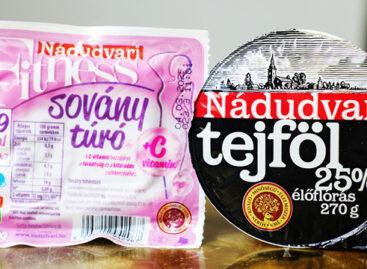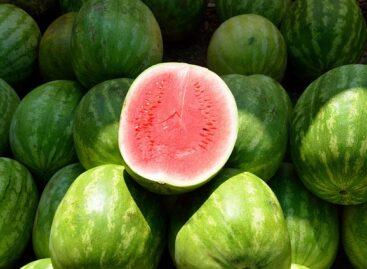AM: focus is on the food industry
The food industry is of particular importance in the Hungarian economy, which has faced many challenges in recent years, but has nevertheless been able to adapt and develop continuously – stated Márton Nobilis, the Secretary of State responsible for the food industry and trade policy of the Ministry of Agriculture (AM) at the Eastern Hungarian Agricultural Forum. in Hajdúböszörmény, according to the information provided by the department.

(Photo: Pixabay)
The state secretary emphasized that in order to preserve the sector’s competitiveness and sustainability, the government classified the food industry as a strategic sector in 2015 and provided significant support resources for development. From 2014 to the end of 2023, the amount of subsidies flowing into the food industry reached HUF 801 billion, the statement says. Márton Nobilis emphasized that the Hungarian government is committed to the further development of the food industry in order to ensure the sector’s competitiveness and sustainability, as well as to contribute to the growth of the national economy. The food industry is therefore not only an economic interest, but also a national matter, as the quality and reliability of Hungarian products is recognized worldwide. The economic importance of the sector is indisputable, as the food industry represents one of the largest parts of the national GDP, playing a significant role in economic stability and growth. In addition, the sector is one of the largest employers, which directly and indirectly creates many jobs in agriculture, manufacturing, logistics and trade, especially in rural areas, the announcement reads.
According to the ministry, the state secretary also highlighted that the lack of professionals can be a serious challenge for the industry
A properly trained workforce is also important because it increases production capacity and promotes innovation. The Hungarian government is therefore also committed to the development of agricultural vocational training, as this is crucial for the future of agriculture. Thus, the development of agricultural vocational training receives a lot of attention, because by learning modern technologies, young people can enter the labor market with up-to-date knowledge. Márton Nobilis explained that within the framework of the Food Industry Champion Program, the government is focusing on the development of key players in the Hungarian food industry. The purpose of the program is to support companies that produce products with high added value based on domestic raw materials, which will help these companies to stand their ground on the world market. This ensures that the Hungarian food industry remains competitive and that Hungarian families always have high-quality Hungarian food on their tables. He added that the government’s goal is to create an integrated food chain that guarantees the safety of production and food supply in the long term, while also contributing to the strengthening of rural communities. The Food Industry Champion Program provides new opportunities not only for large companies, but also for small producers to be able to produce food competitively and safely. In the next period, special attention will be paid to ensuring that tenders supporting the food industry are widely available, thus helping to increase the competitiveness of the sector and reduce the shortage of professionals, said the State Secretary, according to the announcement of the Ministry of Agriculture.
MTI
Related news
At the forefront of the domestic food industry for more than half a century
The future of the food industry is shaped by young…
Read more >Tradition and innovation: this is how Nádudvari stays competitive in the food market
In today’s food market, it is not enough to simply…
Read more >Hungarian melons can regain their lost export markets, according to producer associations
Hungarian melons can regain their export markets, a third of…
Read more >Related news
WHO: They urge a 50 percent price increase for tobacco, alcohol and sugary drinks
The World Health Organization (WHO) is calling for the prices…
Read more >Eurozone economic growth accelerated in June
The eurozone’s economic performance accelerated in June, according to the…
Read more >This is how drug prices are changing: the government introduced price restrictions
The Ministry of National Economy’s price restrictions on medicines came…
Read more >






